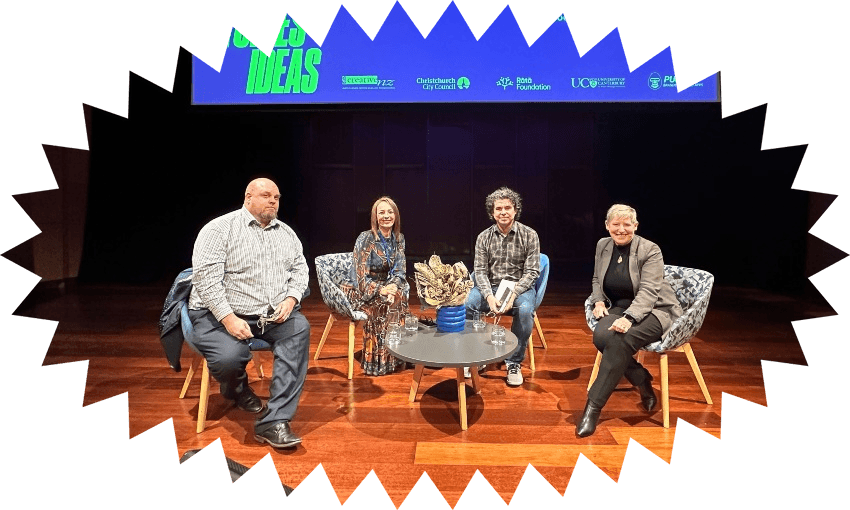A special episode of The Spinoff’s politics podcast, recorded live at the Word Christchurch festival in Ōtautahi.
The state of the campaign, the struggling Chrises and the electorate battles to watch are all on the agenda as Toby Manhire, Annabelle Lee-Mather and Ben Thomas take the stage in a special edition of the Spinoff politics podcast Gone By Lunchtime at the Word Christchurch festival.
Joining the GBL trio is Lianne Dalziel, former cabinet minister and Christchurch mayor, to share her thoughts on the Labour campaign, the Christchurch electorates to watch and the local-central balance.
Dalziel cast her mind back to 2005. “It was the most stressful election campaign I have ever run in. It was misogynist. It was racist. It was nasty. And it was the first time ever that I stood on street corners having meetings and people said, ‘What’s in it for me?'”
That campaign was also special for her because it made her able to give up smoking. “I needed to have a stressful moment so that I could never use stress as an excuse for taking up smoking again.”
We also ask: Was Hipkins’ announcement he’s ruling out New Zealand First a smart or strange tactic? What would the title for the story of the campaign so far be? And among the questions from the audience: What is on your election night bingo card?
Follow Gone By Lunchtime on Apple Podcasts, Spotify or wherever you listen to podcasts.





